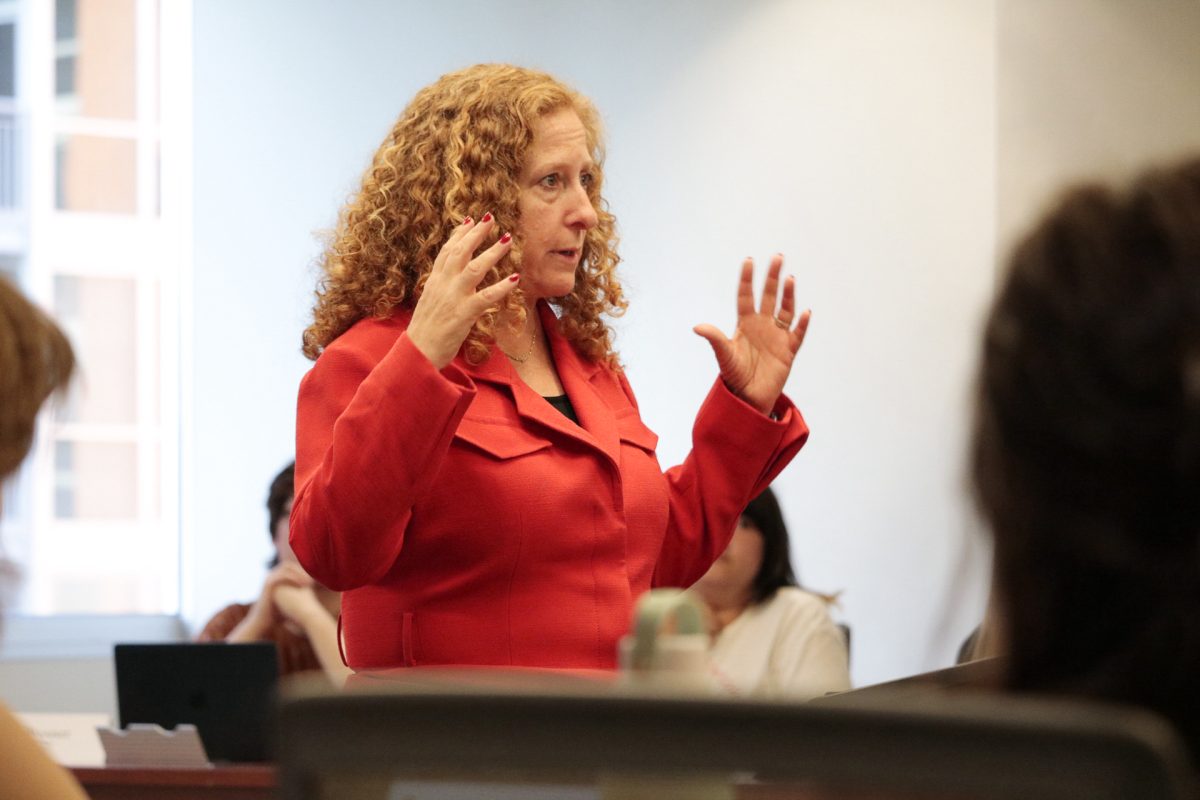Affording tuition and other school expenses is proving harder than ever in the current economic recession, but for student-parents, paying the bills is becoming nearly impossible.
University of Wisconsin sophomore Jessica Goodwin, who currently has an infant, said despite receiving assistance from the university and the state, she is finding her expenses rising and her pocket tightening virtually every day.
While Goodwin works at a group home once a week and earns approximately $600 each month, her expenses often reach more than $1000 in the course of a month. She added the increasing prices for baby products and clothing, along with the low pay from her work, has not helped her situation.
“It’s hard to pay for rent, gas and electric, and to keep clothed,” Goodwin said. “I look forward to financial aid time. But, the money goes so quick and now I’m back in a rut where I really can’t pay anything now.”
Lori Holmes, a mechanical engineering graduate student with three children, said the economy has presented its fair share of difficulties for her family.
“It is very scary right now,” Holmes said. “My husband is not getting a raise this year. So far we are being extra special careful right now. And we don’t want to ask anymore from the state because we have our pride.”
Michelle English, a junior at UW-Milwaukee and spokesperson for the UW-Milwaukee Student Parent Association, said she has been unemployed since October because of the current economic difficulties.
English has a toddler and added she lost her child care and FoodShare benefits as of December 2008. She said she cannot quit college because she would have absolutely no resources with which to pay her bills.
“I am literally raising my son by maxing out my student loans (and) depending on friends to help me with looking after my son while I’m in classes,” she said.
English added that being a student-parent is centered on three roles: provider, student and caregiver. She said these three roles are constantly presenting her with choices that are especially difficult as a single parent.
“I am the only source of financial support for our little household … and the worry that my baby and I will starve is very real to me,” English said. “I do know how many people fall through the cracks. The only reason I haven’t completely is because I did once, and I’ve clawed my way back out of them, with a few lucky breaks and the help of some caring people.”
English added being a student-parent is really no different than being a single parent who’s underemployed or unemployed.
“If one is willing to work as hard as one has to to survive, there are actually a few advantages,” she said. “Student-parents are eligible for more financial assistance than students without children, if they know where to look and are willing to put forth the effort to seek it out.”
Jennifer Dittrich, parent resource specialist for the Office of Child Care and Family Resources at UW, said she would not say student-parents are any more affected by the current economic situation, but she did agree they struggle more than students without children because funds are simply tighter.
“Not only do they have themselves to care for, they have their children. They are at the same level jobs as every other student, they just have that bigger struggle with balancing their student and family status,” Dittrich said. “I would imagine since they’re not making more until they actually graduate that, yes, their pocket books are going to be a little more strained.”
Rising costs lead to sacrifices
While managing to dish out money for ever more expensive diapers, baby formula and clothing, student-parents are also finding it more and more difficult to scrounge together enough funds for full-time day care and afterschool programs.
According to Lynn Edlefson, director of the Office of Child Care and Family Resources, the biggest issues she is experiencing with student-parents is the high cost of child care.
“With housing and food and everything else going up, just any assistance they get with childcare is really appreciated,” she added.
She said while UW offers a child care tuition assistance program, CCTAP, which is funded by the Associated Students of Madison, it by no stretch alleviates the entire cost — usually only covering 30 to 40 percent of the total costs.
In fact, Edlefson said child care is often more than tuition at UW. A student with an infant can pay upwards of $335 per week, totaling about $12,000 for the semester, while an in-state student pays approximately $3,800 per semester.
Holmes said daycare prices are “completely outrageous” currently, and she does not foresee them getting cheaper anytime soon. She added she would not have been able to swing the expenses this year without the help from CCTAP.
“It’s so much money that we can’t afford the after-school programs,” Holmes said. “I’d love to get my middle child in gymnastics, but we just can’t swing it. We don’t have the extra money, and I’m not making any money as a student.”
Edlefson added she is seeing more cases of “patchwork care,” where students are being forced to place their children in part-time daycare versus full-time care because of strained checkbooks.
“It’s just the issue of whether they really only try to have their kids in day care when they’re in class, and then they have to do more of that homework time with the kids in the house,” Dittrich said.
Dittrich said she is not aware of any daycare centers that have had to tighten their belts just yet.
However, she added the Office of Child Care and Family Resources provides support to the childcare centers on campus, who often submit a wish list of items they need funded. Dittrich said the items on the list have become more numerous because the centers are being forced to use their funds elsewhere and are increasingly relying on funds from her office.
Holmes said while she is currently straining to pay the bills, she is also aware she is not the only one.
“I think everybody thinks they have it hardest,” she said. “Whether you are a struggling student or a struggling student with kids — everybody has their own burdens. I might not have it as hard as a student who doesn’t have a child but is just financially strapped. I just consider myself lucky to even be here,” Holmes said.












